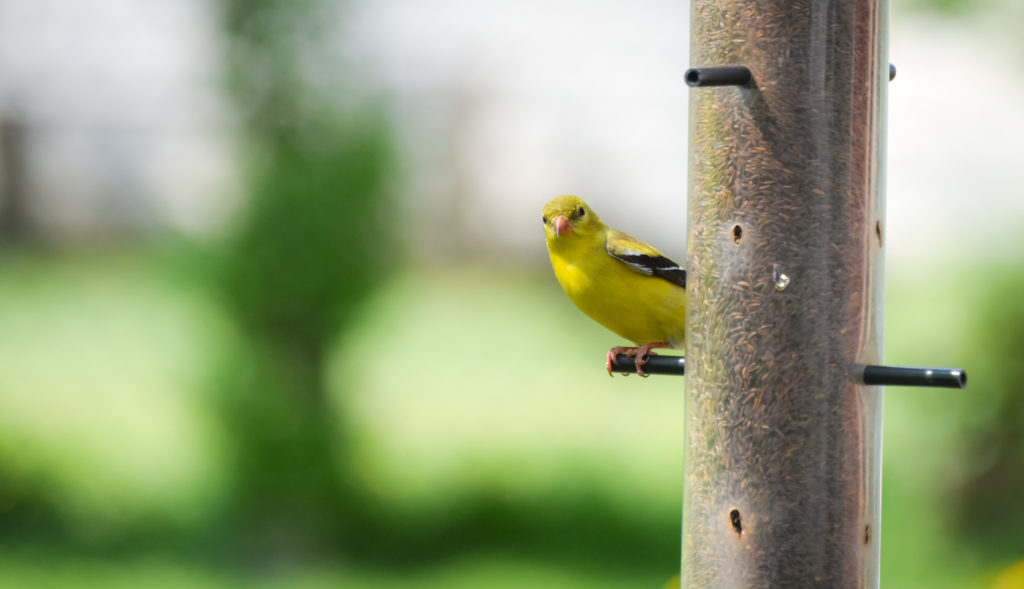
INTERESTING BIRD FACTS:
FACT 1: Over 100,000,000 birds are killed yearly by hitting windows. If you have large windows or glass doors, put decals or sun catchers on them to help warn the birds that something is there.
Why do birds fly into windows?
The answer is simply this: they do not see the window, so to them, it does not exist.
Oftentimes, when a hawk flies through a window he is chasing another bird, or he sees an animal on the other side of the window that he wants for lunch. A hawk can suffer from injuries so serious that he must be put down. Other times, they may have a really big headache or may not suffer any injuries at all.
When smaller birds fly into windows, it’s perhaps because they saw reflections of trees and clouds in the windows, which can trick them into thinking they are flying in the air. They may get injured with a broken neck or wing, or they may be knocked unconscious.
I like to tell people that a bird hitting a window is comparable to someone hitting you on the head and knocking you to the ground with a 2×4; you’ll need some time before you can get right back up! The same with a bird: if you can give them a couple hours and protect them from predators, they will most likely get up and fly away.
To help prevent these events from happening, follow these tips:
- The larger the window, the bigger a threat it poses to the birds. Sheer curtains or sun catchers on the windows can protect against a bird hitting it,
- DO NOT put your bird feeder close to the house.
FACT 2: Many people love to feed the birds. With that comes a responsibility to the placement of your feeder, the seed, and consistency. If you have a backyard feeder, a good way to learn and identify the birds is to get a good identification book and check to see what birds are coming to your feeder. It can be a fun activity for the whole family.
Tips on Bird Feeding Year-Round
Birds quickly learn where the seed is and if you are going to feed the birds, you need to ensure it is consistent. The birds, especially in the winter months, will become dependent on that food. If you start feeding them and then suddenly stop, the birds are left in a precarious position. In the winter, feeding may help them survive.
The following tips will help care for the feeder year-round:
- Be sure that all seed is clean, fresh and dry.
- Suet should be checked frequently; watch for rotting.
- If you put sugar water out for the hummingbirds, change the water at least once a week. Wash the container as you would with the bird feeders (only in summer).
- Place bird feeders away from your house, as this will help prevent unwanted house guests such as chipmunks and mice. It will also decrease the likelihood of birds hitting windows.
- When placing your bird feeder away from the house, it’s a good idea to place it near shelter such as bushes, trees or a brush pile. This will give them a chance to easily hide and find safety from hawks and other predators.
- If you find sick or dead birds around the feeder, stop feeding, remove all the seed, clean and disinfect it. Wait a week to begin feeding again.
- Squirrels will get into the feeders. If you don’t want them in your feeders, you can try to reduce this by setting them up their own feeder.
WILDLIFE PROGRAMS AND DISPLAYS
If you would like to see many of these animals up close, please consider booking one of our Wildlife Programs or Displays that are reasonably priced and perfect for Organizations | Schools | Churches | Campgrounds | Nursing Homes | Fundraisers | Displays at Events. All money generated from the programs & displays goes right back into the care of the wildlife.
For more information about our programs, visit our programs page.
Copyright 2017 Fran Kitchen
